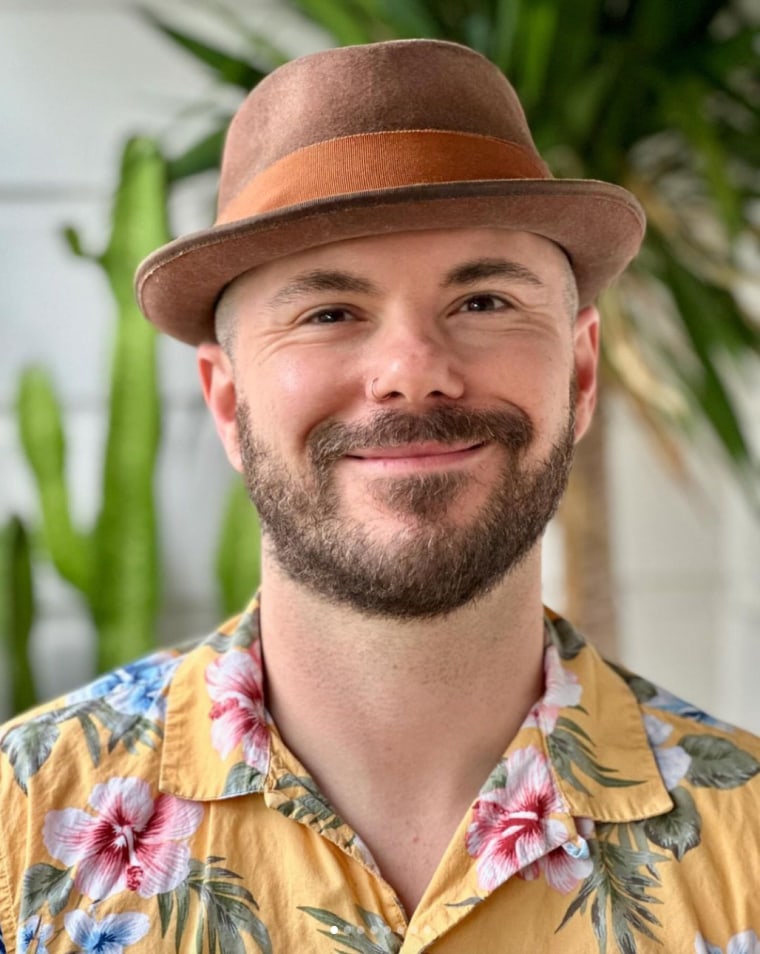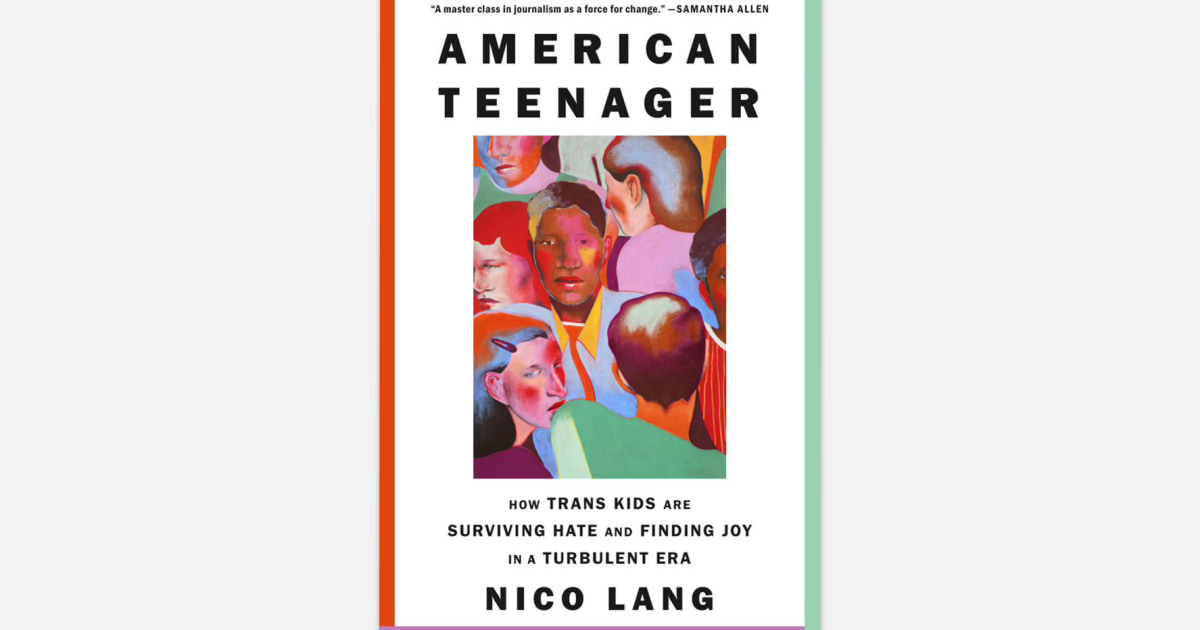As state lawmakers have introduced hundreds of bills targeting transgender people, particularly youths, over the last few years, Americans have rarely been able to hear from those most directly affected — trans youths themselves.
“American Teenager: How Trans Kids Are Surviving Hate and Finding Joy in a Turbulent Era” plans to change that by sharing the stories of eight trans teenagers, who were between 16 and 19 when they were interviewed for the book. Like most teens, these young people are navigating school, finding community through their faith, falling in love for the first time and working through growing pains with their families.
Some of them, however, have also had to become activists in recent years, as half of states have passed laws that prohibit them from playing school sports on the teams that align with their gender identities, and 26 states have enacted measures that bar them from receiving certain types of transition-related health care, such as puberty blockers, hormone therapy or surgeries.
Author Nico Lang, a journalist who has covered the trans community for about a decade, including for NBC News, said the book is simply meant to show readers that trans people are people. Lang, who uses gender-neutral pronouns, said that they were on the phone with Kimberly Shappley, the mother of a trans girl living in Texas, in 2021 and that she “was freaking out” because state lawmakers had introduced a bill that would classify transition-related care for minors as child abuse.

Lang said that bill made them feel like “we were lacking any sort of good faith at all in the discussion, because if we are unwilling to see someone like Kimberly and her daughter Kai as humans deserving the same rights as we do, there’s nowhere we can go in the conversation.”
“For some reason, Republicans still don’t really think of trans people as being people in the same way that they are, or families of trans people as being people in the same way that they are,” Lang said. “That’s really what this book is about.”
Lang noted that most Americans don’t know a trans person. A survey conducted last year by the Public Religion Research Institute, or PRRI, found that while only 16% of Americans surveyed said they do not know a gay, lesbian or bisexual person, 63% said they do not know someone who is transgender.
The percentage of people who say they know a trans minor is likely even lower, Lang said. They spent nearly a year, starting in September 2022, traveling across the country to spend time with eight trans young people in South Dakota, Alabama, West Virginia, Texas, Illinois, California and a pair of siblings in Florida.
“With this book, if you are one of those people you now do know a trans child — you know one of these kids, and sure you have never met them in person, but I know, as somebody who grew up in books, sometimes characters in books, I feel like I know them better than people in my actual life,” Lang said. “I really wanted to give readers this opportunity to dispel those myths and misconceptions and just start to treat people as people.”
Lang already knew some of the families included in the book from their reporting and others they found through local LGBTQ organizations. They wanted to ensure the group was diverse because the trans kids and their families who are often featured in national reporting have been predominantly white.
“American Teenager” also features religious diversity, challenging the common misconception that being trans conflicts with people’s religious faith, Lang said. For example, Ruby Carnes, who was 19 when Lang spent two weeks with her in Houston, attends an Episcopalian church with her family who identify as Evangelical Christians, Lang said. Carnes’ church hosted a renaming ceremony for her after she came out as trans. Clint Ahern, who was 17 when he was interviewed for the book, told Lang that he immediately began praying in the men’s section of the Chicago mosque he attends with his family after he came out as a trans boy.
Some of the young people Lang spent time with describe how gender-affirming medical care has affected their lives. Ahern, for example, is one of the rare cases of a minor being cleared by medical professionals to receive top surgery, or a double mastectomy. Starting in eighth grade, Ahern would wear two compression binders at a time, which doctors don’t advise, leaving him with purple and green bruises on his ribs if he wore them for too long.
Now, Ahern doesn’t hide under multiple heavy hoodies, competes on the men’s swim team at his school — something that wasn’t possible before top surgery — and his father said he’s more comfortable with himself overall.
Though Lang spoke to many of the teens about their access to health care, those discussions make up only a small portion of the teens’ stories. Many of their experiences are those of typical teenagers. Carnes was asked out by her crush just a few days after Lang arrived. Kylie Yamamoto, a 17-year-old in Torrance, California, would treat her conversations with Lang as her own “personal podcast,” Lang wrote. Once when Lang went to the restroom, she grabbed their recorder to share a message to her fans.
While writing the book, Lang said, they wanted to help derive meaning from the kids’ stories, but they didn’t want to try to flatten them or try to find similarities. They also wanted to allow the kids to be “messy” and complicated.
“The major theme of the marriage equality movement was ‘love is love,’ and emphasizing that queer people deserve the rights to marry because our relationships are the same as yours,” Lang said. “That’s true for the most part, but I feel like in a way, that loses the point. I shouldn’t have to be the same as other people to deserve rights. These kids shouldn’t have to be the same as other people to deserve rights. They should be able to get to be different and also be deserving of not just equality, but of love, of support, of protection.”
Some of the trans youths Lang spent time with were going through mental health crises and incredibly difficult experiences. As a result, Lang said, they experienced vicarious trauma and had to start taking heart medication. They also started attending a Buddhist temple in Los Angeles that shared a message with them that resonated as legislation targeting trans youths continues: “Trying increases karma.” They hope their book will encourage people to try to support any trans youths they know and also to learn more about them.
“In our lives, we want to be this fully actualized, assured person, but you’re not there, and I think a lot of people beat themselves up about that,” Lang said, adding that some of the parents in the book were hard on themselves for misgendering their kids sometimes or not being the perfect ally.
“But trying is good,” they said. “So for those readers who realize how much they still have to learn, just do it. Try to learn. Don’t always ask these kids to do it, because they’ve got enough going on as it is. Just keep trying, because that’s how we get better as a society.”

Leave a Reply